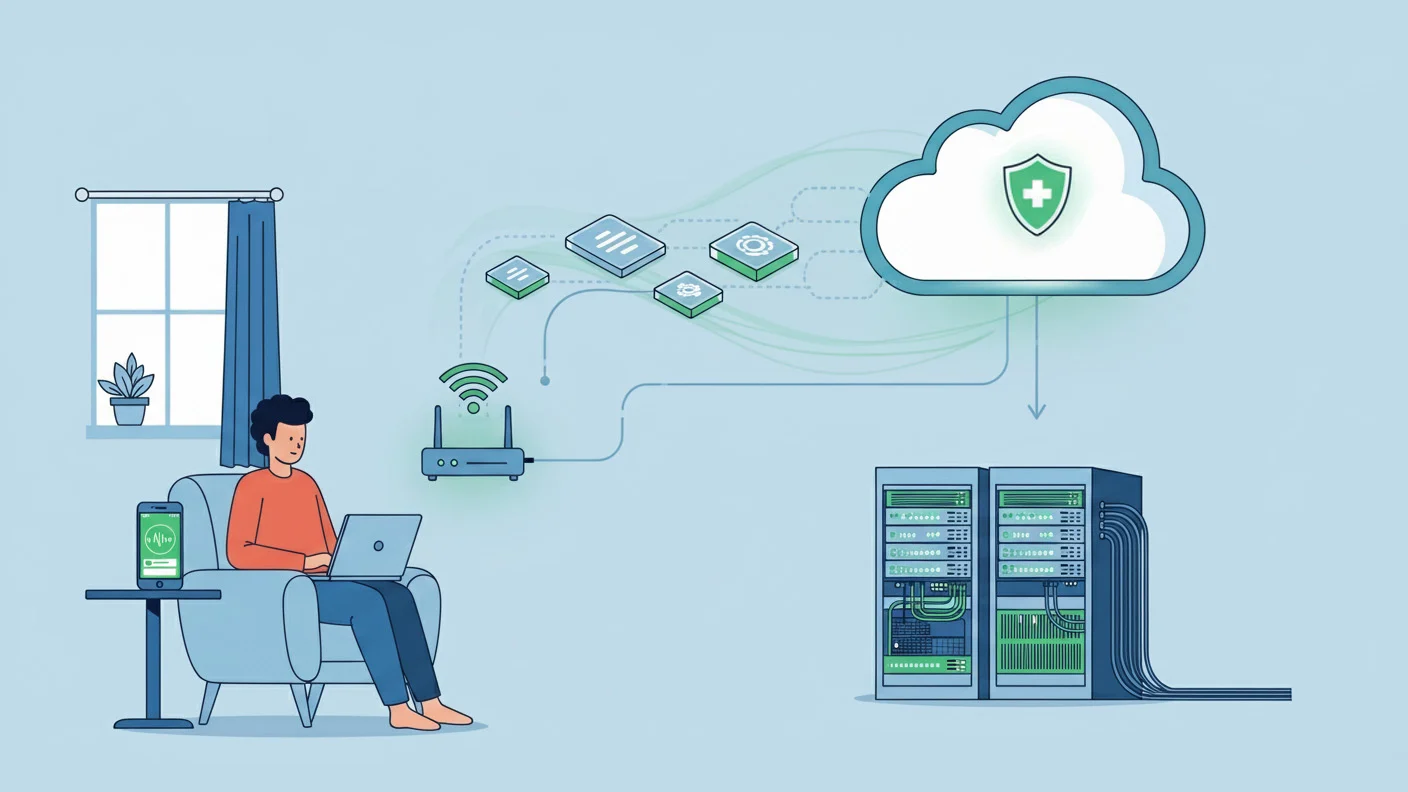
Cure, Google Gemini
Overview
Powered by innovative digital health technologies, decentralized clinical trials make leading-edge clinical research accessible to more people in their homes and communities.
There was a time when participating in a clinical trial meant traveling to a clinic or designated study site to receive an investigational drug, undergo lab tests, or complete a physical exam. Today, when study design permits, clinical research is increasingly conducted through decentralized clinical trials, with some or all study activities taking place outside traditional research facilities.
These alternative locations might include a patient’s home, a local healthcare provider’s office, or a nearby laboratory. The rise of decentralized trials has accelerated with the adoption of digital health technologies (DHTs), which gained significant traction during the COVID-19 pandemic.
DHTs enable the direct collection of health data from individuals using portable devices such as glucose monitors, blood pressure cuffs, and activity trackers. They also support self-reported symptom tracking and functional assessments through digital questionnaires that patients can complete on their own phones or through devices provided to them. Patients can interact with physicians and study coordinators via secure telehealth platforms, further reducing the need for in-person visits.
By minimizing logistical burdens, improving patient recruitment and enabling real-time data capture, decentralized clinical trials offer a compelling option for biotech startups— particularly when resources are limited.
The Benefits of Decentralized Clinical Trials
Some elements of decentralized trials existed a couple of decades ago. Study sponsors could send items to patients in their homes or enable them to have periodic blood and urine tests at designated labs closer to their homes. DHTs dramatically improved that model.
"With the advent of digital health, things really started accelerating. We can now capture data through a platform so patients don't have the burden of traveling miles to get to a study site. This technology has helped people living in under-resourced locations overcome barriers to clinical trial participation, reducing logistical challenges," explained Reginald Swift, PhD, CEO of Rubix Life Sciences, a clinical research organization.
Decentralized clinical trials can make it easier to recruit participants and keep them enrolled if they don’t have the burden of travel. This is not only valuable to people with transportation challenges, but those with impaired mobility, including some patients with rare diseases. Decentralized studies can also lower costs by reducing travel reimbursement fees.
Being able to participate in a clinical trial remotely or locally is also a benefit for individuals with household or childcare responsibilities that make it difficult for them to attend clinic visits at prescribed timeframes.
Decentralized clinical trials may also boost the enrollment of more diverse patient groups, including populations traditionally underrepresented in clinical research.
"This underrepresentation can have real-world consequences, as people of different ages, biological sexes, races and ethnicities may have a range of responses to treatments that the clinical trial may not fully capture. Individuals from racial and ethnic minority groups may disproportionately live in areas without clinical research facilities, and decentralized clinical trials may open access to research for them," said Leonard Sacks, MD, associate director for clinical methodology in the Office of Medical Policy at the FDA's Center for Drug Evaluation and Research in an online interview.
Beyond convenience, DHTs enable far more frequent data collection than traditional scheduled trial visits, often capturing information continuously. Because these tools gather insights during participants’ everyday routines, they offer a more nuanced view of how a treatment performs in real-life conditions.
People Still Matter
While the implementation of DHTs can facilitate decentralized clinical trials, you'll always need human staff members to educate and support participants and ensure the study proceeds according to federal guidelines. The FDA’s regulatory requirements for investigations of medical products are the same for decentralized clinical trials and those that do not include decentralized elements.
Study coordinators will also need to:
Ensure electronic healthcare data are collected and stored securely.
Make sure treatments being sent to patients or their local clinics are transported safely (such as medications requiring refrigeration).
Teach participants how to take investigational therapies at home and enable them to easily report side effects.
Educate clinical research staff and study participants about how to use DHTs correctly.
Implement strong data management measures.
What You'll Need to Kick Off a Decentralized Clinical Trial
There is no shortage of vendors providing services to biotech startups seeking to design and execute decentralized clinical trials. The Clinical Trials Transformation Initiative offers a number of recommendations to help you get started.
Knowing your target population is key, so look for a vendor that can help you connect with the community you wish to serve.
"Having boots-on-the-ground support and individuals with a contextualized understanding of that demographic will help you design your study and produce the datasets you need. It also helps to craft your approach sooner than later, and a lot of the digital health tools out there can help you do so," said Swift.
He advised searching carefully for a vendor that doesn't only focus on completing transactions, but on achieving outcomes. Perform a gap analysis of your company and find a vendor that provides the services you need.
"Ask yourself how they can be a partner and not just a vendor. You're going to need a complement to what your company may lack," noted Swift.
Regardless of how many new DHTs are developed and how many new clinical research vendors enter the marketplace, relationships between study participants and healthcare providers will always matter the most.
Concluded Swift, "These new digital tools are just that — tools. They can greatly help with workflow. But relationships are important, too. People still want to speak with people."








